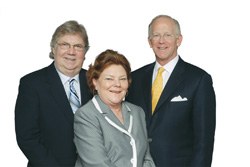Political Consumers Hungry for Substance (Opinion)
by October 15, 2012 12:00 am 161 views

Junk food for thought. Well, more than junk, really.
Because what political consumers — political junkies — want is information, statistics, narratives and a full course of messaging that sates their appetite for electoral knowledge.
Political consumers are aware. They are news consumers, as well. They gobble up on a daily basis cable news stories, Internet columns, online blogs and newspaper articles to keep abreast of the subtle nuance or gross gaffe every campaign offers up. The latest speech, poll, misstatement or campaign commercial is both information and entertainment to the political consumer.
Are you always “on message?” Political communications strive for message discipline. Sticking to key ideas and policy particulars designed to persuade voters to move in the direction of an issue or candidate is one of the most difficult consumer marketing strategies in politics. And make no mistake: The consumer we talk about here is the likely voter, the participant in the election process who research determines is most likely to vote and most likely to be swayed by a specific argument for or against a candidate or a ballot issue. Just as with consumer products and services, consistency and repetition, along with creative and memorable presentations, are the keys to messaging success.
Political research provides the lay of the land for political consumers. Those consumed with campaign coverage appreciate knowing what others think and how the campaigns respond. Polls are a way of keeping score as the game is played. Random-sample polling and focus group testing also are tools of the trade to help shape the campaign strategy and messaging.
In Arkansas, we have recently learned a little more about what likely voters are thinking through focus group research. Perhaps this will shape what you see and hear between now and Nov. 6.
• Likely voters — political consumers — in Arkansas are turned off or “annoyed” by the generalized nature of the national campaign to date and by how more localized issues are not being discussed by candidates in either party. If you follow the “what’s in it for me” approach to political campaign messaging, there is a level of confusion about the messages likely voters are receiving because the topics discussed, even Medicare and Medicaid, and the way they are discussed from an ideological standpoint do not seem to be relevant to the Arkansas voter.
• Likely voters also appear to be “worn out” by the lack of cooperation between the two parties to address “issues important to me, my family or my job.” The nature of the national campaign has greatly aggravated this sense of “tiredness.”
• Likely voters want candidates to talk about working together with others — just as they work in their job, in their community or church or with their family and friends to solve problems and do for others what they cannot do for themselves.
• Likely voters are looking for reassurance they can impact their own lives in their own communities by supporting candidates and issues that relate directly to Arkansas, rather than addressing broad national concerns. They want their vote “to mean something.” They appear to be drawn to messages that localize the narrative of the upcoming election, thus making their decision about their lives, their community and the state of Arkansas.
Political consumers are simply a more informed and motivated version of retail consumers. Rather than the shop or store, their marketplace could be described as the “public square” and, ultimately, the voting booth. They want to make the right decision on their purchase, which to them is the casting of their vote. And they want their purchase, their vote, to complement their perception of who they are, their self-awareness and their self-worth. These are not decisions they take lightly.
The political junkie as consumer is in his quadrennial heyday with the approaching presidential election, as well as with local elections and statewide ballot issues. They’re eating it up!
Craig Douglass is an advertising agency owner and partner with Zoe and Ernie Oakleaf in InFocus LLC, a Little Rock focus group research company.
